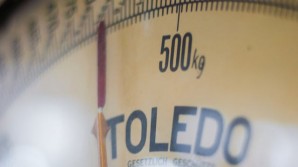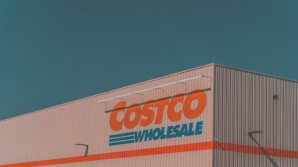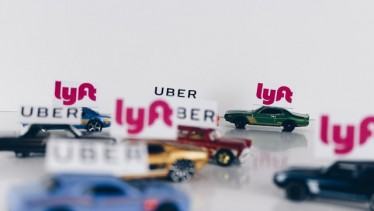If you have ever been into a business you'll know the one thing that business owners have no control over are contingencies. No matter how prepared you are, there's always a possibility of something unforeseen taking place that could shake revenue or profits to be earned. A much-recommended investment for any business owner regardless of any industry would be a standby generator that can continue your daily routine without interruption. This guarantees continuity of business despite power outages ensuring revenue. And profits are not disturbed.
With such a growing demand in the Australian market for these smart solutions, starting a generator dealership itself can prove to be very rewarding. From outback farms to urban offices and the farthest mine havens of Australia- all need one thing in common, a continuous supply of electricity. If you are looking to set up a generator dealer business in the region, look no further. As a prospective generator dealer, there are many factors to consider before you plunge into the local market.
Generate a Business plan
As with any business, it's important to have a detailed structured business plan in hand. A business plan is a skeletal framework of the type of business you intend to do- in this case, a generator dealer business. Ideally, this will include your business's vision, mission, strategy, and goals. This document must enlist financials including how much it would cost to set up a generator dealer business in your selected region in Australia, along with a sales forecast and expected profits and loss if any. It is in the business plan you document all aspects of your potential business. It's also worth including a sales pitch plan on how you intend to sell your products. This can entail a detailed plan listing the many benefits of tiny generators or industrial size that can be used across industries. A business plan is nothing but a reality check to yourself, and a third party reading it on how you plan and execute your business.
For this reason, it's important to be as realistic as possible and include real-time information like:
-
Business overview
-
Market Analysis
-
Organization management
-
Sales strategies
-
Product or service line
-
Competitor reviews
-
Financial projections
-
Timelines
-
Contingency plans
If you are looking for investors to support your initiative, this document is imperative. Every aspect of this document covers key details on how you plan to run the business including business structure, hiring qualified staff, etc.
Know Your Competitors
Knowing who is in the business should be a part of your business plan. Conduct a market review along with current and potential competitors in the generator dealers business, especially within your area. It's also important to check if the local generator market is saturated or if it's alright for another leg to step into the boat. For example, Melbourne is a great market with heavy human traffic for generator rentals. Being a coastal capital, it is a thriving center for businesses including outdoor events, restaurants, hotels, universities, etc. There is a space in this market to excel with expert product knowledge and consultation on a range of construction machinery and equipment (including generators!). List out your business with tags like-" our Melbourne Office" on Google Business that can help you fetch those local customers easily. Knowing your competitors, including their business philosophy, products and services can make you prepared for what's in store. Understand what competitors' charges, which are the popular brands for generators and what customer preferences are. With a plethora of options in automatic, manual and different fuel types used in generators, you must ensure your product range is competent enough to stay.
Learn the trade through existing players
Now that you know your competition, it's worth talking to people who have been in the generator dealer business - but in another town/city. The chances of local businesses sharing advice with you may be less as they probably will see your upcoming venture as a threat to them. The last thing you want as a potential business owner is misleading advice!
Instead, talk to generator dealerships in other cities or towns to get the gist of things (as long as they don't see you as a threat either!). Shortlist about 10 companies dealing in generators, especially the types you potentially are looking to sell and ring them. You are bound to find at least one person who is willing to share nuggets of wisdom. There are many people who are willing to mentor new entrees to guide them.
Startup or Franchise?
While building up a business from scratch sounds rewarding, the quickest option to enter the market would be - to buy a viable business. Starting any business from scratch may present heavy challenges financially with lenders hesitant to lend to an unknown startup. Acquired generator dealer businesses or franchises make this route simpler as they are known, proving to be less risk for lenders. Another benefit of a franchise is that it gives you a chance to learn from previous entrepreneurial mistakes and business knowledge that you could benefit from during the hand down. If you still haven't made up your mind, here are a few reasons why a franchise option could be better for business:
-
Start your business quick
One of the most attractive factors about a franchise is that you get to start the business much quicker than a startup. Most importantly, the business will be based on the franchisor's proven business formula which literally cuts down risks that you would have faced as a startup.
-
Expand
Franchising allows for expanding your business faster with the valuable expertise and assistance from the franchisor.
-
Hand down knowledge
Probably the most irreplaceable bit of support in comparison to a start-up. Franchisees have seen it all when it comes to the business they are in. Generators being heavy equipment requiring maintenance and constant support, a franchisee knows the amount of training and support it takes to run a business in this industry.
-
Low financial risk
Investing in any business holds a chance for loss. As a business building from scratch, the risk of losses is higher owing to being new to the market. Costs add up with every new addition including stock management, purchases, staff, location, marketing, etc. Before investing a large scale, it's worth carrying out a comparison of how much it costs to set up on your own or become a franchisee.
The Generator Industry
Generators have transformed the way businesses work with their irreplaceable contribution. This energy harvesting device was invented by a British scientist, Michael Faraday, in 1831, making it one of the most iconic devices of all time. Virtually all electric power is produced using Faraday's principles, irrelevant to a mechanical energy source. All fuels, including coal, gas, petrol, hydro or wind, kick start the generator which in turn activates the electrical current present in wirings.
At a time when electricity is considered the lifeline of businesses and people alike, being a generator dealer is one of the most profitable businesses of our times. Almost all commercial or industrial businesses require a generator on-site to ensure business continuity. This is particularly true for life dependent treatment facilities that need electricity running all day. This also extends to households, outdoor events, restaurants, universities, dorms who need electricity to perform. Whatever the industry, generators jolt profits back to life during an unanticipated power outage. The generator industry comprises three major stakeholders- manufacturers, suppliers, and dealers.
Manufacturers
As manufacturers, it is their duty to produce generators that match local and international standards. Manufacturers need to invest heavily in setting up top-notch production facilities. Their main focus remains on producing generators that enhance fuel efficiency at a low-cost production. The investment amount in starting up a manufacturing unit is very high and is a large scale.
Distributor or Supplier
The next stakeholder is a supplier or distributor. The main function of these is to develop their footprint or presence by tying up with dealers in their potential allocated market. Distributors link with manufacturers to appoint as many dealers as possible to reach out. Dealers are trained on generators manufactured by distributors. Distributors often stock generators specifically required in the market and offer credit facilities to dealers.
Dealer
As a dealer, you play an important role of being the primary contact point for the customer or end-user. In this leg of business, it's important to reach out to customers using different marketing and sales promotion activities like cold calling, email, conferences, etc. Once the customer base is tapped, it is the dealer's job to maintain an affable relationship with the end-user, providing support. Being in the generator dealer business, it is also your role to provide installation, periodic maintenance support and in general, be the go-to person.
New models of business have since arisen in the Australian generator industry. There are separate repair houses set up that are dedicated to repairing generators only. In order to set up one of these, you need to have expert technical knowledge of generators, including how to disassemble and assemble these power equipment. The amount to set up a repair company is small and sourcing funds for the same may not be a task.




















